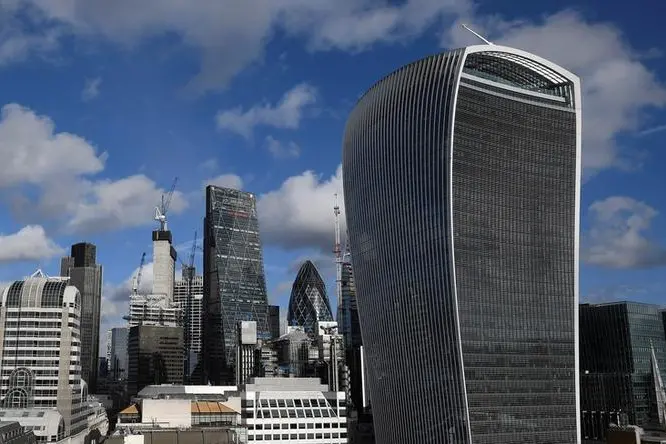PHOTO
Higher inflation and rising taxes to fund healthcare and other public services will cause living standards in Britain to continue stagnating over the years ahead, economic policy analysts said on Thursday.
The Institute for Fiscal Studies - whose views on policy are closely watched in Britain - said Wednesday's budget statement from finance minister Rishi Sunak represented a big shift towards higher taxation and spending.
"What we have had is a chancellor responding to the ever-increasing demands of the healthcare system on the one hand, and the increasingly dire plight of the likes of the justice, social care and prison systems, starved of funding for a decade, on the other," IFS director Paul Johnson said.
Britain's budget forecasting agency, the Office for Budget Responsibility (OBR), said Sunak's budget would take public spending to its highest since the 1970s and see the tax burden rise to its highest since the 1950s.
A rise in payroll taxes for workers and employers, starting in April, will bring 16 billion pounds ($22 billion) of annual revenue to fund more health spending. Increased tax on corporate profits from 2023 is forecast to raise a similar amount.
Credit rating agency Moody's said the budget showed a degree of prudence by not spending all of a windfall from stronger growth forecasts, but forecast general government debt would remain near 100% of gross domestic product.
The OBR also forecast inflation would average 4% next year, the highest for a calendar year since 2011, due to higher energy prices and supply chain bottlenecks as the world economy emerges from the pandemic.
'NOT MUCH FEEL-GOOD'
The IFS said the outlook for households' disposable income was at odds with Sunak's promise of "a new age of optimism".
"Voters may not get much feel-good factor. High inflation, rising taxes and poor growth, still undermined more by Brexit than by the pandemic, will see real living standards barely rising and, for many, falling over the next year," the IFS's Johnson said.
Asked about this, a spokesman for Prime Minister Boris Johnson said Sunak had been "very open about the immediate challenges".
The budget contained measures worth 2 billion pounds a year to help recipients of welfare benefits, plus longer-term incentives to boost investment and wages, he added.
British living standards have stagnated since the 2008 financial crisis. The Resolution Foundation think tank estimates real wages in 2024 will be just 2.4% higher than 2008, compared with a 36% rise in the 16 years before the financial crisis.
Johnson has talked up the prospect of higher wages, as some businesses have raised wages in response to labour shortages created by the pandemic and lower post-Brexit immigration.
But almost all economists see higher productivity as the only long-term guarantee of higher living standards, which post-Brexit trade barriers and reduced immigration will hamper.
"The country remains in need of an economic strategy that steers us through this period of huge economic change," Resolution Foundation director Torsten Bell said.
($1 = 0.7272 pounds)
(Additional reporting by Kylie MacLellan, Editing by Andy Bruce, Jon Boyle and A>ndrew Cawthorne) ((david.milliken@reuters.com; +44 20 7542 5109; Reuters Messaging: david.milliken.thomsonreuters.com@reuters.net))





















